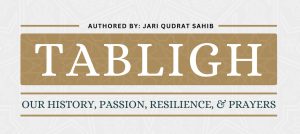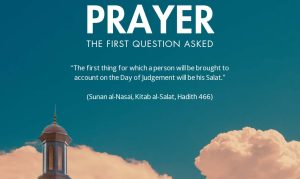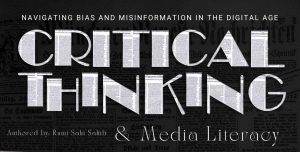
Explore Islam 1000 Towns
MUSLIM YOUTH ARETRAVELLINGTOOVER1000TOWNS IN CANADA TOLETRESIDENTS‘EXPLOREISLAM’

MUSLIM YOUTH ARETRAVELLINGTOOVER1000TOWNS IN CANADA TOLETRESIDENTS‘EXPLOREISLAM’

Spreading the message of Islam Ahmadiyyat is a core tenet of our faith. The propagation of Islam Ahmadiyyat is rooted in sacrifice, passion, resilience, and prayers, all in the field of Tabligh. This mission of spreading the beautiful teachings of Islam Ahmadiyyat is rooted in the love of Allah and the Holy Prophet Muhammad (sa), following the footsteps of this Noble Prophet (sa) aspiring to bring about a spiritual revolution in the deserts of Arabia.

The profound practice of prayer, or du’a, holds a central place in Islam. Prayer is not just a religious obligation Read more

“The first thing for which a person will be brought to account on the Day of Judgement will be his Read more

Imagine you had the opportunity to meet any person you wanted every week. If you’re interested in sports, maybe your favourite athlete; if you’re interested in business, maybe a businessman you look up to and if you’re interested in academia, maybe a scholar whose work you appreciate the most. I’m sure you’d carve out the time to ensure that you can meet them. You wouldn’t be “too busy” for it and you wouldn’t be lazy to get up. Well, what if I told you that the most important person on this planet knocks on your door every Friday. They want to meet you, they want to guide you and their love for you is so much that they pray for you every day. Our beloved Huzoor(aba) attempts to connect with us every Friday through his Friday sermon; however, more often than not, we don’t open the door. We take it for granted, but should we? We hear many times that Khilafat is a blessing, but what does that really mean?

From a young age, the appeal of travel has fascinated me. My journey began with backpacking through Europe during my high school days, a time that predates the smartphone era. Grateful for the opportunity, now, as a father of two daughters, I am committed to nurturing in them the love for exploration and an open-mindedness that embraces diverse cultures and our rich history as humans.

In an era where media profoundly shapes perceptions and behaviors, especially in matters of relationships and dating, young people and their parents face the significant challenge of maneuvering these influences with care and discernment. This need becomes even more critical in a culture that often promotes promiscuity and instant gratification. Understanding the merits of waiting and refraining from dating can be invaluable.

In the age of information overload, the ability to critically analyze and interpret the vast volume of data is paramount. The topic of “Critical Thinking and Media Literacy: Navigating Bias and Misinformation in the Digital Age” encapsulates this necessity. This essay will explore the importance of recognizing bias, understanding subtext, drawing evidence-based inferences, applying these concepts to the written and spoken word, and differentiating between critical analysis and conspiracy theorizing.